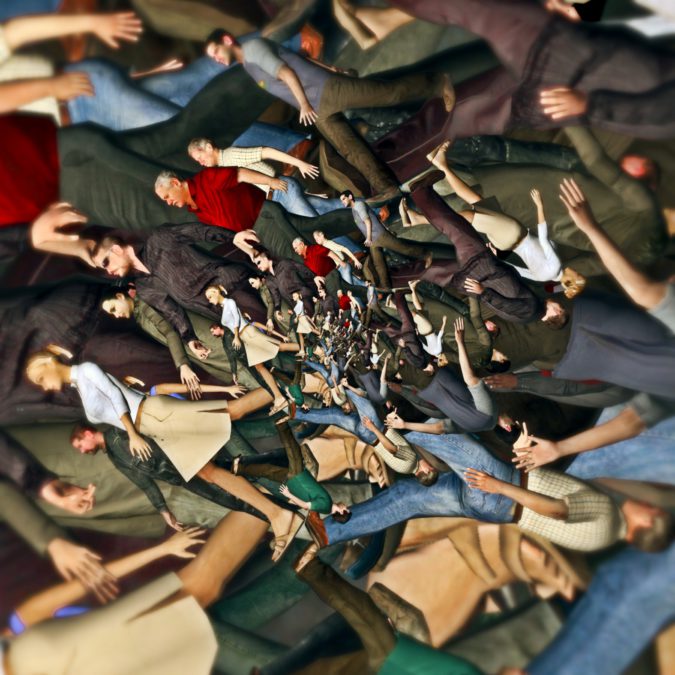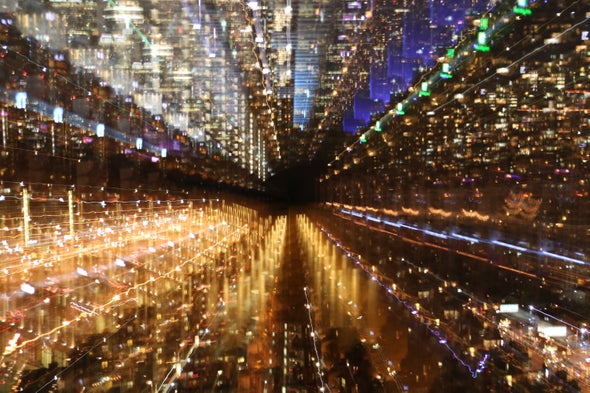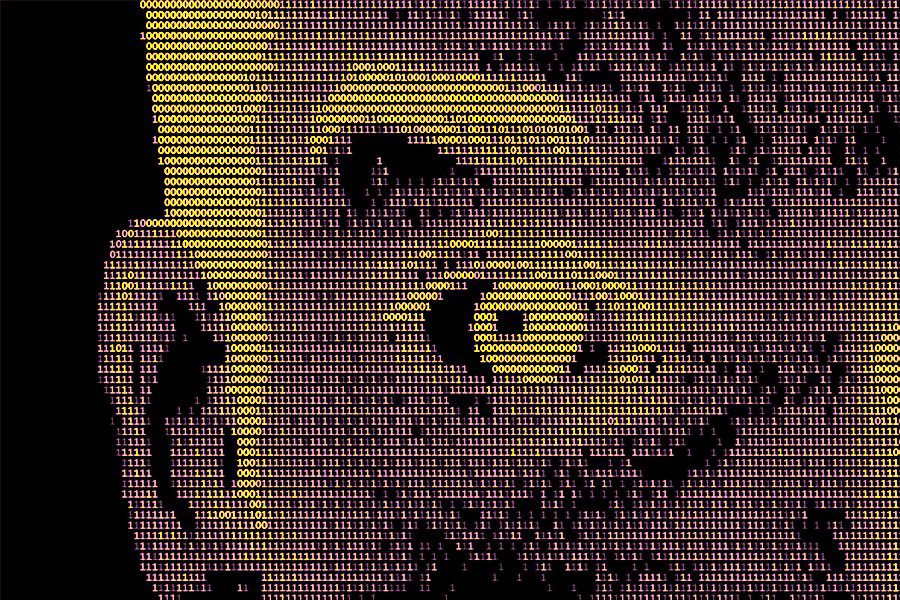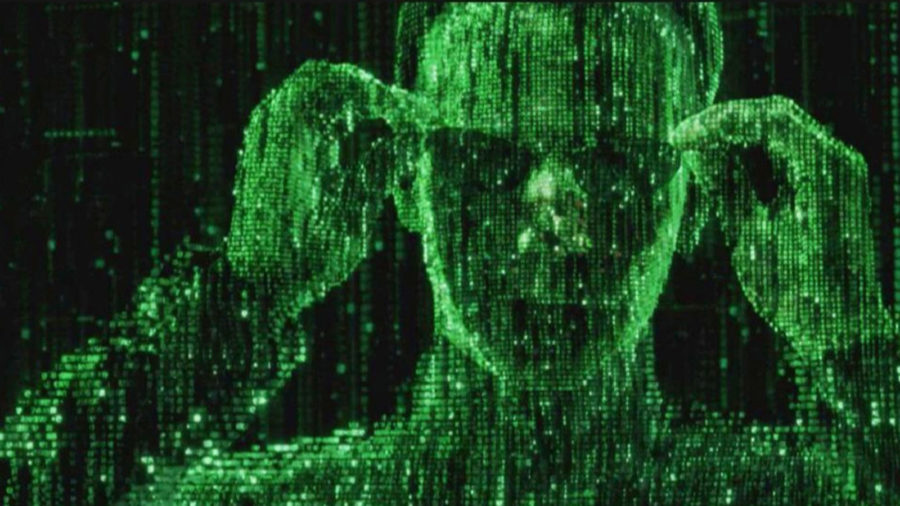And physics can prove it. We consider the popular scientific theory from the perspective of a threat to humanity.

Original material by Preston Green
Since the 1990s, social and natural science researchers have used computer simulations to try to find answers to questions about the world. Why do wars happen? Which political systems are the most stable? How does climate change affect global migration? The quality of these simulations is changing because they are limited by how well modern computers can simulate the diversity of our world, and to be honest, it is lame.
But what if one day computers become so powerful, and these simulations are so advanced, that every simulated person in computer code is as complex as me or you? What if other people believe in its existence? What if this has already happened?
In 2003, philosopher Nick Bostrom put forward the thesis that we may be living in a computer simulation created by a more advanced civilization. He argues that if you believe that our civilization will one day be able to run many simulations to study their ancestors, then you should also be close to the idea that we can be in one of these simulations right now. What are his arguments? If people eventually invent simulation technology (no matter how long it takes) and if they are interested in simulating their ancestors, then the number of imitated people with experiences similar to ours will significantly exceed the number of 'non-simulated' people.

If most people are simulations, says Professor Bostrom, chances are we are among them too. Our world may be one of many simulated realities, perhaps part of a scientific project created to study the history of civilization. As the physicist and Nobel laureate George Smoot explained, “If you are an anthropologist or historian and want to understand the reasons for the rise and fall of civilizations, then you will need to create a large number of simulated realities with millions and billions of people.”
The theory that we live in a computer simulation may sound strange, but it has already found its adherents. Elon Musk once said that the chances that we are not someone's simulation is “one in billion.” Professor Smoot evaluates this relationship on an even larger scale.
Recently, scientists have become interested in testing this theory. In 2012, physicists at the University of Washington took inspiration from Bostrom's work and proposed an empirical experiment designed to prove or disprove the simulation hypothesis. The details are not easy to explain, but the basic idea is quite clear: some of today's computer simulations of space give out characteristic anomalies, for example, there are noticeable distortions in the behavior of simulated cosmic rays. Physicists have suggested that closer examination of cosmic rays in our universe will allow us to notice similar anomalies, which will prove the fact of our simulated existence.
Similar experiments were carried out in 2017 and 2018. Professor Smoot outlined the prospects and potential findings of these proposals, stating that “you are all a simulation and physics can prove it.”
To date, none of the experiments have been carried out, and I hope that they will remain at the theoretical level. In fact, I am writing to warn you that the practical implementation of such an experiment could have disastrous consequences, even to the destruction of our universe.
Think about it this way. If a researcher wants to test the efficacy of a new drug, it is very important that the test takers do not know whether they are taking the experimental drug themselves or a placebo. If they become aware of this information, then the tests will lose value and must be canceled.

By analogy: if our universe was created by a more advanced civilization for research purposes, then it would be reasonable to assume that it is important for hypothetical researchers that the subjects in our face do not learn about the simulation. If we want to prove the fact of the 'virtuality' of our universe, then our creators may well interrupt the project, destroying our world.
Of course, the proposed experiments may not reveal any hints of computer simulations in our world. In this case, the results prove nothing. And this is one of my points of view: the results of experiments will be interesting only if they are potentially dangerous to our existence. And while it will be of great benefit to us in obtaining reliable information that we are actually living in a simulation, the risks, including the possible annihilation of our world, will be many times greater.
Here is a rough hypothetical plan for an experiment at the Large Hadron Collider, the world's largest particle accelerator: “The experiment is unlikely to produce interesting results, but if it does, it could lead to the end of the world.” Do you think you would give the green light to such an experiment? Of course not.

As far as I am aware, none of the physicists who proposed to conduct an experiment to prove the theory of simulation did not take into account the potential risks of their project. And this is surprising, not least because Professor Bostrom explicitly pointed out the 'cessation of simulation' as a possible cause of the destruction of humanity.
This area of academic research is full of speculation and uncertainty, but one thing is certain: if scientists advance in their experiments on this hypothesis, the results will be either extremely boring or incredibly dangerous. So is it worth the risk?
Original material by Preston Green
Nick Bostrom's theory first met me a couple of years ago, but every now and then again appears on the net in different readings and forms, its postulates never cease to haunt inquisitive minds. If you think about it, you get quite curious arguments, everyone should wear foil hats.
- The earth, according to scientists, has existed for 4.5 billion years. This time is quite enough for the formation of a civilization capable of developing to such a level to study us, the ancestors, in the format of a simulated reality of a planetary scale.
- Throughout the history of mankind, we have not come to a common understanding of the origin of our species. So maybe we've been discussing the wrong versions all the time?
- Are we alone in the universe? Where are the traces of the gods descended from heaven, mentions of which in different forms are found in the ancient paintings on the walls? Simulation theory comes in handy here, the 'creators' just don't want us to have contact with anyone.
These are questions from the 'surface', but this 'iceberg' is much more than it seems. Parallels can be drawn with other theories, such as, for example, with the multiverse and its infinite number of intelligent civilizations, which in turn create an infinite number of simulations, whose inhabitants at some stage also begin to create virtual worlds.
The author's skepticism is understandable, because for many the theory itself seems to be nonsense, and then there is the idea that we are not the highest link in evolution, but simply a model in a research program created by our super-advanced descendants. But with all this, he admits the presence of someone from above, as well as a possible reaction to an attempt to expose the universal conspiracy.
In your opinion, is it possible to take simulation theory seriously, or is Elon wrong again?
